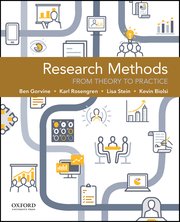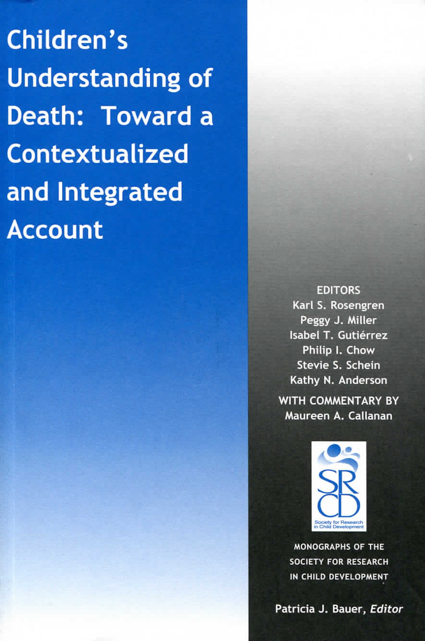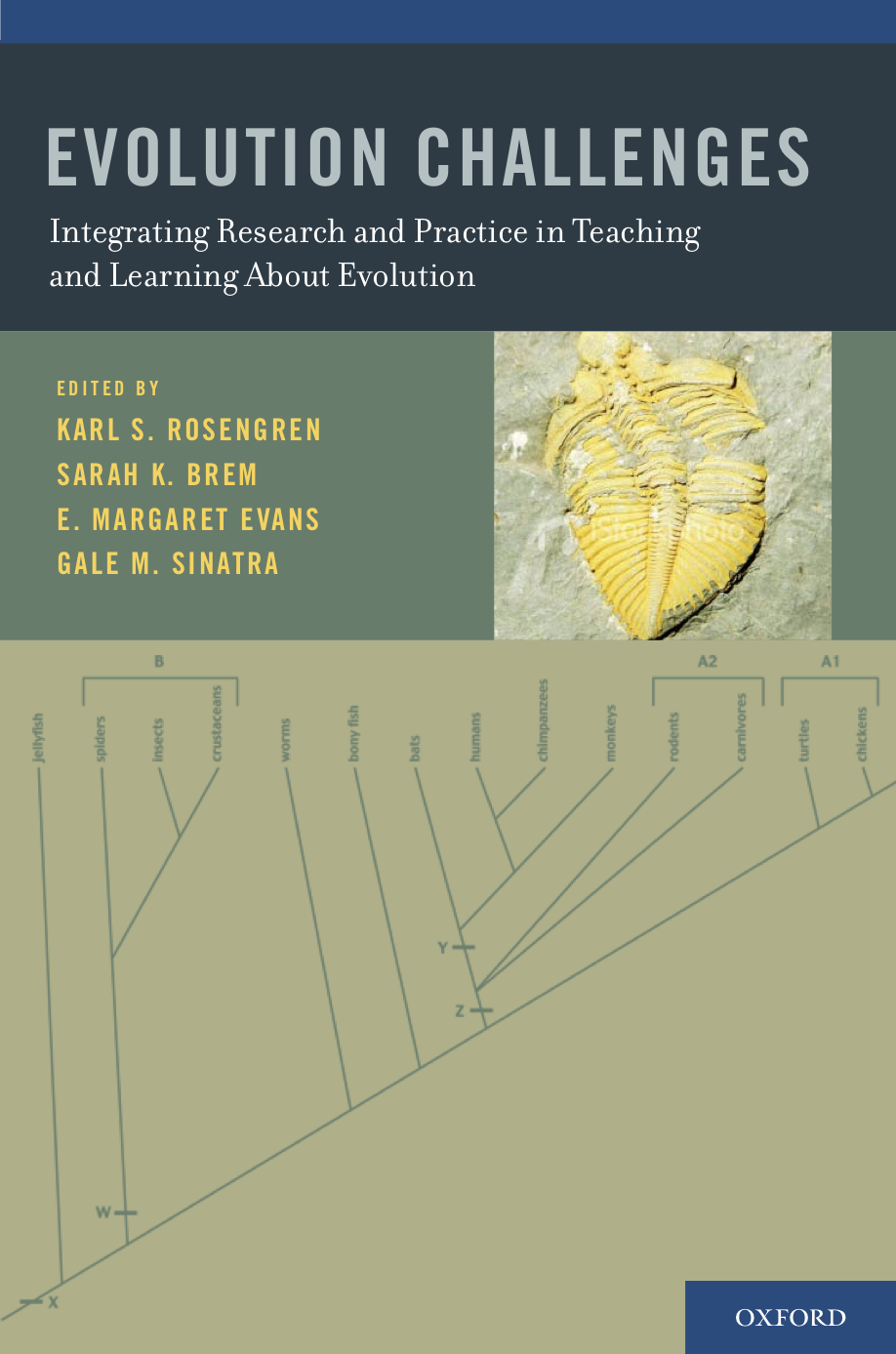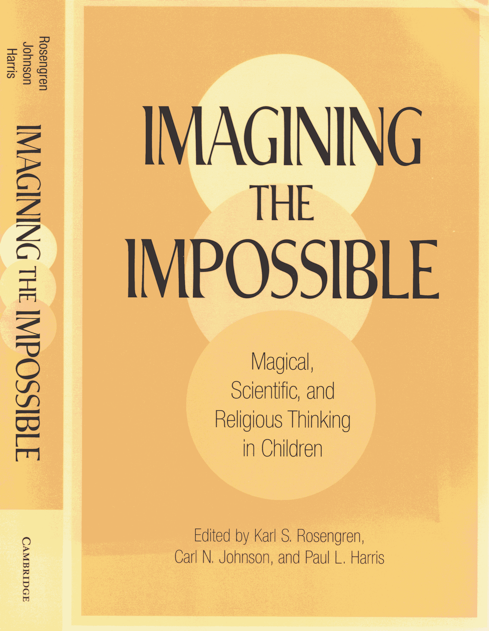
Hi, I'm
Karl Rosengren
I'm a Professor with a joint appointment in the Brain and Cognitive Science Department and the Psychology Department at the University of Rochester. My PhD is in developmental psychology and my research focuses on how the way we think and move changes with age and experience. In my spare time I love to ride bikes, build wooden watercrafts, play soccer, and eat ice cream.
Research
The focus of my work is on change: how children think about changes in the world surrounding them and how children and adults adapt to changes in their local environment in order to act safely and effectively. These topics divide into three lines of research:
Children’s Reasoning and Conceptual Development
I have long been fascinated with how children reason about objects and events in the world and how they can differentiate between things that are possible in the real world with those that aren't. This lead me to examine children’s understanding magic, fantasy, biological changes such as growth and metamorphosis, and children’s understanding of death.
Sample publications
- Seeing Is Believing: Children's Explanations of Commonplace, Magical, and Extraordinary Transformations
- The Credible Shrinking Room: Very Young Children's Performance With Symbolic and Nonsymbolic Relations
- Searching for Coherence in a Complex World: Introduction to the Special Issue on Explanatory Coexistence
Motor Development and Control
In the motor domain I have primarily been interested in how children and adults maintain balance and effectively move through the world. I have conducted research on how children and adults control their balance, how specific experiences such as learning T’ai Chi lead to improvements in the way older adults move, and how factors such as the equipment and fatigue influence firefighters' balance and walking.
Sample publications
- Generalizability of center of pressure measures of quiet standing
- Children achieve adult-like sensory integration during stance at 12-years-old
- A Review of New Analytic Techniques for Quantifying Symmetry in Locomotion
Interaction of Cognitive and Motor Development
Most behavior emerges from the complex interaction of different factors with the individual child, the task they are confronted with, and then the environment they are in. I have two lines of research that look at how cognitive and motor development interact over childhood. The first area focusing on children's action errors - where young children (and sometimes adults!) attempt to perform an action on an object that cannot be successfully completed because the object is too small (scale error), the object is depicted in a photograph (grasping error), or the object is available on digital media (media errors). The second area focuses on the development of children's drawings. Children's drawings have long been used in a wide range of assessments, focusing primarily on the final drawing. My work investigates the underlying processes that influence the final product.
Sample publications
Books and Monographs
Research Methods: From Theory to Practice
Research Methods: From Theory to Practice guides students through the entire research process - from choosing a research question and getting Institutional Review Board approval to presenting results at conferences and submitting work for peer review.
KEY FEATURES
- Provides students the practical skills needed to conduct their own research
- Encourages critical thinking to help students become educated consumers of research presented in journal articles and the popular media
- Considers the influence of rapidly changing technology on research methods, including statistical and neuroscience methods
- "Inside Research" features personalize research by highlighting real-life examples of researchers working in a variety of fields
- "Media Matters" features analyze and evaluate how a particular research study or general topic relevant to the chapter is portrayed in the media
- Flowchart Figures present key concepts of the research process in a clear and simple visual overview
Children's Understanding of Death: Toward a Contextualized and Integrated Account
In this monograph we (1) provide an account of young children's socialization with respect to death and (2) develop a conception of children’s understanding of death that encompasses affective and cognitive dimensions. Conducted in a small city in the Midwest, the project involved several component studies employing quantitative and qualitative methods. Middle-class, European American children (3-6 years, N = 101) were interviewed about their cognitive/affective understandings of death; their parents (N = 71) completed questionnaires about the children's experiences and their own beliefs and practices. Other data included ethnographic observations, interviews, focus groups, and analyses of children's books.
Parents and teachers shared a dominant folk theory, believing that children should be shielded from death because they lack the emotional and cognitive capacity to understand or cope with death. Even the youngest children knew basic elements of the emotional script for death, a script that paralleled messages available across socializing contexts. Similarly, they showed considerable understanding of the subconcepts of death, providing additional evidence that young children's cognitive understanding is more advanced than previously thought, and contradicting the dominant folk theory held by most parents.
Although children's default model of death was biological, many children and parents used coexistence models, mixing scientific and religious elements. A preliminary study of Mexican American families (children: N = 27, parents: N = 17) cast the foregoing findings in relief, illustrating a different set of socializing beliefs and practices. Mexican American children’s understanding of death differed from their European American counterparts' in ways that mirrored these differences.
Evolution Challenges: Integrating Research and Practice in Teaching and Learning About Evolution
A recent poll revealed that one in four Americans believe in both creationism and evolution, while another 41% believe that creationism is true and evolution is false. A minority (only 13%) believe only in evolution. Given the widespread resistance to the idea that humans and other animals have evolved and given the attention to the ongoing debate of what should be taught in public schools, issues related to the teaching and learning of evolution are quite timely.
Evolution Challenges: Integrating Research and Practice in Teaching and Learning about Evolution goes beyond the science versus religion dispute to ask why evolution is so often rejected as a legitimate scientific fact, focusing on a wide range of cognitive, socio-cultural, and motivational factors that make concepts such as evolution difficult to grasp. The volume brings together researchers with diverse backgrounds in cognitive development and education to examine children's and adults' thinking, learning, and motivation, and how aspects of representational and symbolic knowledge influence learning about evolution. The book is organized around three main challenges inherent in teaching and learning evolutionary concepts: folk theories and conceptual biases, motivational and epistemological biases, and educational aspects in both formal and informal settings. Commentaries across the three main themes tie the book together thematically, and contributors provide ideas for future research and methods for improving the manner in which evolutionary concepts are conveyed in the classroom and in informal learning experiences. Evolution Challenges is a unique text that extends far beyond the traditional evolution debate and is an invaluable resource to researchers in cognitive development, science education and the philosophy of science, science teachers, and exhibit and curriculum developers.
Imagining the Impossible: Magical, Scientific, Religious Thinking in Children
The study of early cognitive development has emphasized the way in which young children act like scientists, testing and revising theories about the physical, biological, and psychological world. Evidence of this early understanding of the natural order has led researchers to reconsider children's thinking about magical, religious, or otherwise supernatural orders. The present volume offers reviews of new lines of research on children's thinking that stretch beyond the ordinary boundaries of reality. More than being "little scientists," children are here considered as "little magicians," "little metaphysicians," "little theologians" and "little story tellers" or "dramatists," imagining other-worldly possibilities.



